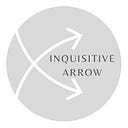Interviewing Tips from Storytellers
Want to be better at job interviews? Learn to be a better storyteller!
For some, interviews come naturally; it seems as though some people could talk about themselves and their accomplishments all day. However, for others, it can be a daunting ordeal. Instead of worrying about how you will talk about yourself, try thinking in terms of telling a story, a story whose main character is you!
An interview is for both you and the employer to figure out if it is a good fit. You don’t need to tell your whole life story, but you need to highlight essential parts applicable to the job. It may be easy to talk about how you got here or why you want the job, but it can be challenging to express what exactly qualifies you for the job. Not saying you are not qualified, just that defining your key qualifying strengths, can be challenging.
Here’s the thing, anyone can list off three strengths and three weaknesses they have, but can you articulate them to show the employer you know how to utilize them effectively?
When asked to give an example of a time, you displayed one of your many skills, try thinking of it in three parts.
First, clearly lay out the situation. Just as a storyteller sets the stage for the story and reveals the problem, what was the problem that needed solving or behavior that needed adjusting in a situation in your life? Try to distinguish a single instance and an exact issue.
Second, what was your solution to it? While you may have been working with a team, make sure to lay out how you were personally involved in being part of the answer. Try to be concise in explaining how you went about it, and not to add unnecessary fluff to the story, and remember to note how specific qualities you possess helped and were displayed.
And finally, what was the outcome? At this point, the interviewer should be captivated to know what happened. Did your idea work or not work? It is important to note that not every story you tell has to be a success; sometimes, employers ask about when you tried something, and it was unsuccessful. It is a helpful indicator of how you view failure. Do you let it discourage you, or do you learn from it for next time?
You do not need to tell an entire two hour long story to display your top three strengths or how you handle certain situations, in an interview. However, do take note of a storytellers ability to take you on a journey and point out key characteristics of the main character along the way. This should also be of some relief and help with the overthinking that comes with interviewing.
In short, set up the problem, define your solution, and reflect on what you learned from the resulting outcome. And remember, a good story is clear, concise, and captivating!
